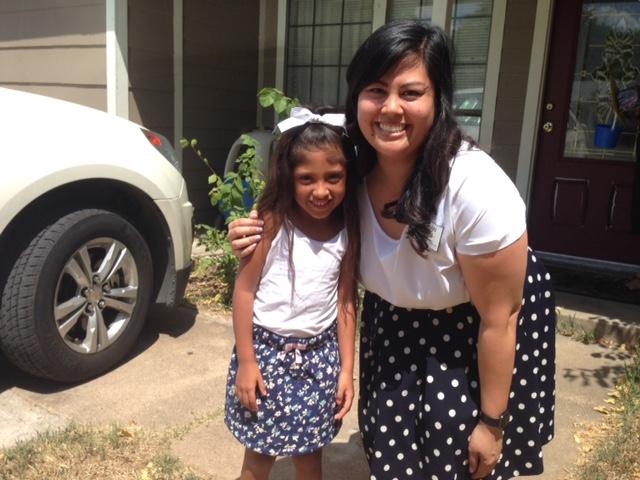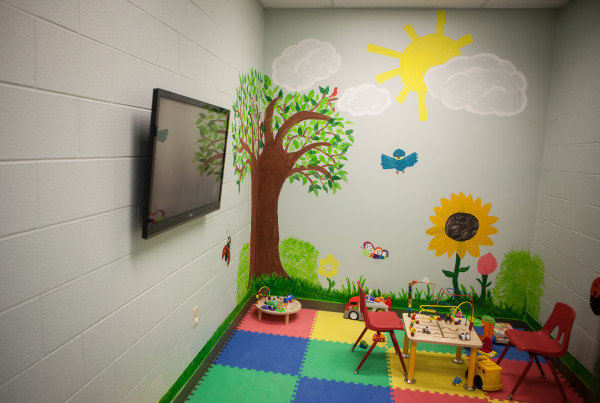From KERA News:
At Momentous Institute in Dallas, teachers don’t spend the final week before school starts soaking up the sun or relaxing at home. They spend it traversing the county– personally visiting the house of each and every student in their class.
Seeing Their World
Marian Ytem teaches first grade—and she’s getting to know her future student Yarixell Almazan in Irving today. They play an ice breaker game and read a book together, a special one Yarixell gets to keep. She’s delighted to see her teacher, show her around and introduce her to baby brother Liam.
She’s also pretty excited to start the year at Momentous Institute, which runs a private school serving low-income families in North Texas. Ytem says the home visit is all about bonding.
“It’s like the first connection we make with our families, it really is,” she says. “Building the connection with them to begin with, before school even starts, seeing where they come from, their home.”
And it gives parents a chance to ask questions. Yarixell’s mom Karen Rico works full-time—and keeps on top of her daughter’s education too.
“Everything starts at home. If you don’t read at home then all they’re learning is the eight hours they’re at school,” Rico says. “You have to do your part also at home and just motivate them and help them with anything they need.”
Making Connections
And that’s a connection that leads to success in the classroom, according to Momentous Institute. Executive Director Michelle Kinder hopes the home visits make it clear from the start that everyone is on the same team.
“We want you to feel seen by us. And we want you to see us as more than just our role,” says Kinder. “We’re actual humans going through this experience together, it’s not just teacher, parent, student.”
Kinder says the link between living in poverty and lack of parental involvement in school isn’t as straightforward as a lot of people think.
“When there’s high chaos in the home, for those families, it’s very hard to stay connected to what’s going on in their child’s education,” she says. “There are many families who are managing poverty who are so driven by the idea that education is going to ladder their child into a new situation economically, they’re the dream parent to work with.”
Learning What To Say, And What Not To
And while Kinder and the Momentous Institute team can’t necessarily soothe chaos in the home, they can connect with parents who might be struggling. That means getting to know a family and their living situation.
“It helps us say the wrong thing less often when we’ve seen a child in their context,” she says. “You know if you’ve gone into a home and you know that there are nine people living in a one bedroom apartment, you’re not going to say ‘find a quiet place to do your homework.’”
The home visit is a great first step in building a year-long relationship, a good way to reach out. And, Kinder says, it’s surprising how often families reach back. Future first-grader Yarixell and her mom already have.

















